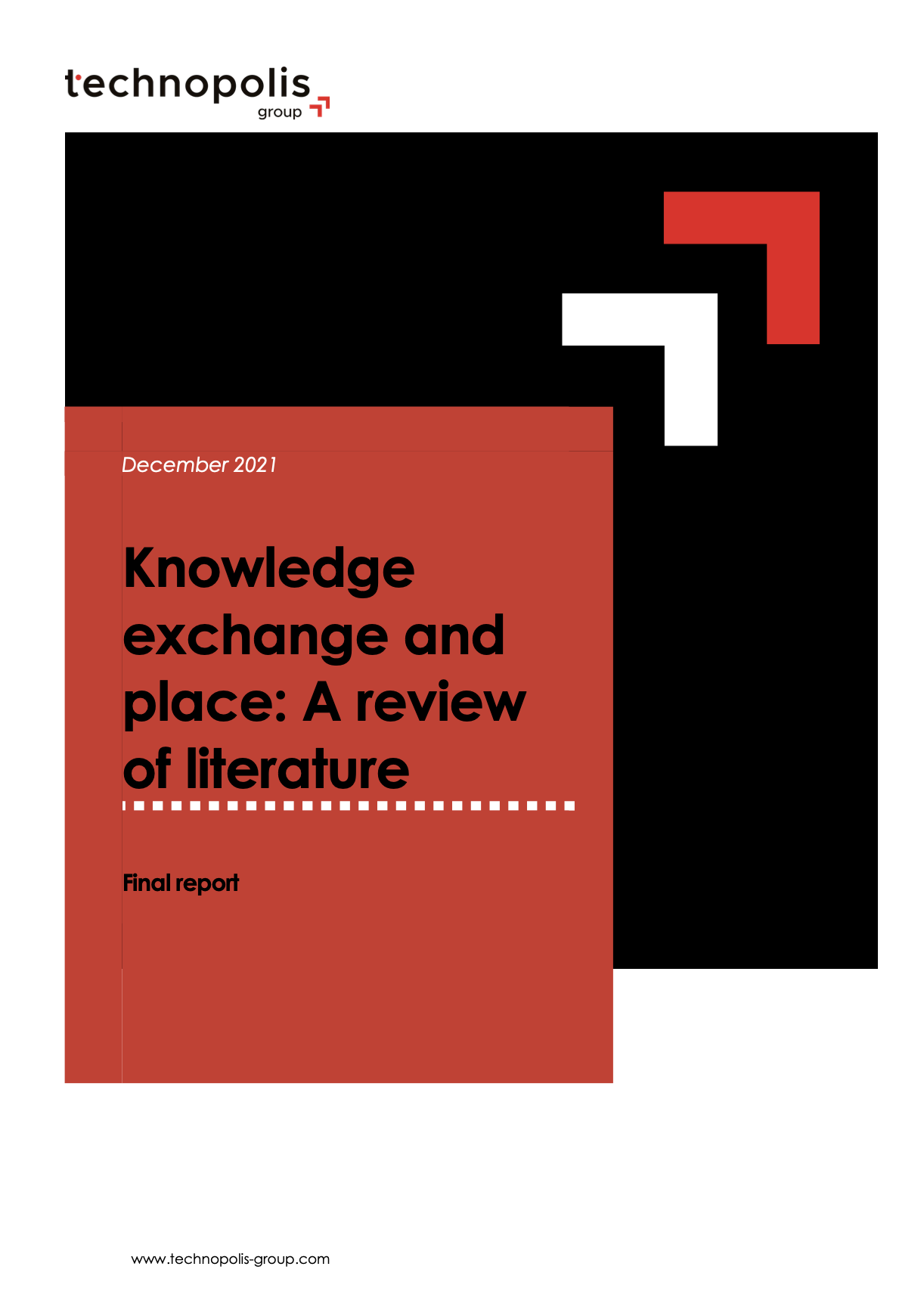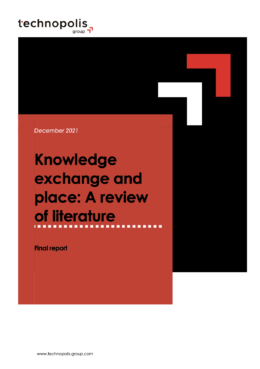Knowledge exchange and place: A review of literature
Publication date: 28 June 2022 | Report language: EN
This exploratory study was commissioned by Research England to understand the interaction
between the knowledge exchange activities of higher education providers (HEPs) and place.
The work is intended as a think piece to inform the design of the method for the next full
evaluation of the Higher Education Innovation Fund (HEIF). This report summarises literature on
knowledge exchange and place that might inform future HEIF evaluations as well as policy
developments, noting though that HEIF does not have specific place objectives. The objective
of the literature review is therefore to develop an understanding of the potential place impacts
of knowledge exchange activities and the context in which these are to be observed, and
how place might drive particular knowledge exchange activities. During the early phase of the
study, a workshop was also conducted with practitioners to test high-level ideas about how
HEPs consider knowledge exchange and place.
To achieve this, the study team have conducted an assessment of academic and grey
literature that covers definitions of place in economic policy, the shifting spatial (place) focus
of policy, the role of higher education providers (HEPs) in their local and regional settings, and
types of knowledge exchange policy and activities that may lead to place impacts.
The report aims to set out: i) What the literature says in terms of the different mechanisms
through which knowledge exchange could have an impact on place; ii) Contextual factors
related to the nature of place-based policy that provide important considerations for future
evaluation design; and iii) Identifiable gaps in understanding within the literature and how
these may be addressed through future work.
The literature review was guided by seven core research questions:
- How is place defined in broad policy literature?
- What role does place play in knowledge exchange, innovation and economic development policy?
- What role do HEPs have in their local and regional areas?
- How do knowledge exchange approaches respond to place characteristics?
- What are the policy tools and instruments that HEPs could use to drive knowledge exchange activity in their local area?
- What evidence is there of knowledge exchange place impact, and how might this be measured?
- What is the ‘best fit’ scale of ‘place’ for knowledge exchange activities?





